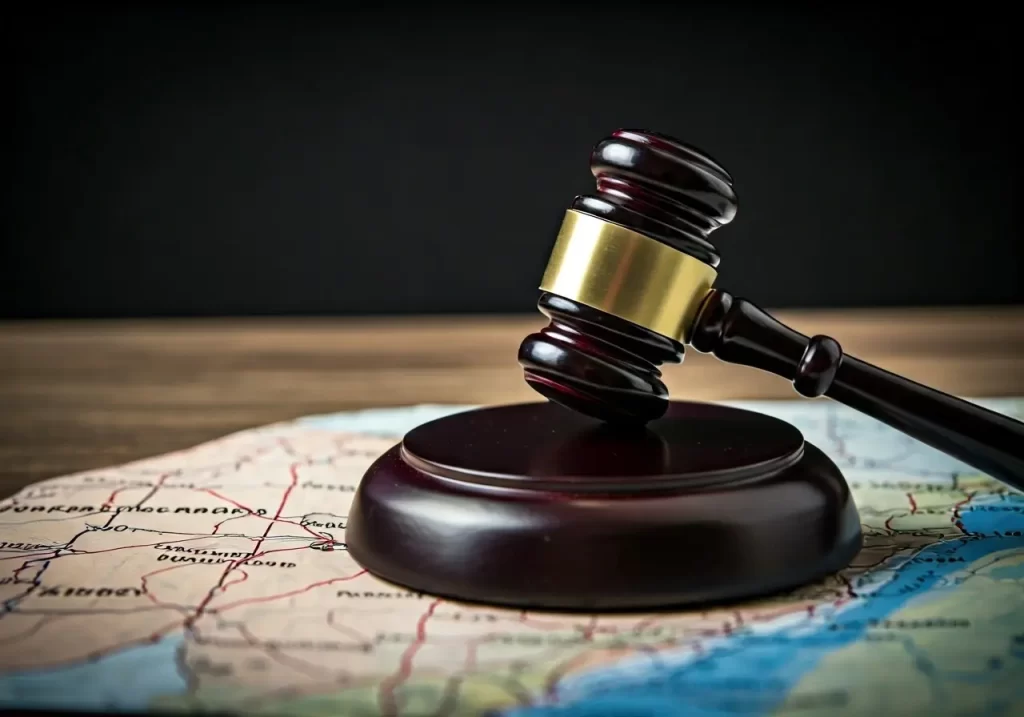Facing DUI penalties in New Jersey can be an overwhelming experience. The state’s laws are strict, and the consequences can significantly impact your life. However, understanding the steps you should take can make a huge difference in the outcome. Here are some practical and essential actions you can consider if you find yourself in this situation.
1. Reach Out to a Qualified Attorney
One of the first steps you should consider is contacting a lawyer who specializes in DUI cases in New Jersey. A seasoned attorney understands the intricacies of state law and can provide you with guidance tailored to your situation.
Your attorney will not only help you understand the legal proceedings but also work towards minimizing the penalties you might face. Whether it is negotiating for lesser charges or defending your case in court, their expertise is invaluable. For many, a knowledgeable lawyer could mean the difference between a harsh penalty and a manageable outcome. Seeking legal advice early can significantly impact the direction of your case.
2. Understand the Laws and Penalties
It’s vital to familiarize yourself with New Jersey’s DUI laws and possible penalties. Knowing what to expect can help you prepare for the legal proceedings ahead and may influence your decisions during the process.
The penalties for DUI in New Jersey can vary drastically depending on factors such as prior offenses and the specific circumstances of the arrest. It’s important to note that consequences might include substantial fines, license suspension, or even jail time. By understanding the potential penalties, you’ll be more equipped to make informed decisions regarding your defense strategy.
3. Attend All Required Court Dates
Missing a court date can lead to serious consequences including additional charges. Mark your calendar and ensure you attend every required appearance to demonstrate your commitment to resolving the case.
It may also be beneficial to prepare thoroughly for each court date. This includes understanding the expectations of each appearance and bringing any necessary documentation or evidence. Appearance in court reflects your seriousness about addressing the charges and can positively affect the judge’s perception of your case.
4. Consider Enrollment in a Driver Improvement Program
Participating in such programs can sometimes reduce penalties and may demonstrate your willingness to address any issues related to driving under the influence.
Driver improvement programs are not only a means to reduce penalties but also an opportunity for personal growth and learning. These programs emphasize the importance of responsible driving and often cover important topics such as understanding alcohol’s impact on driving performance. They can serve as a rehabilitative step showing authorities your commitment to change.
5. Collect Evidence and Documentation
Gather any relevant evidence such as video footage, witness statements, or records that may support your case. This can be crucial in building a robust defense with your attorney.
Consider reaching out to witnesses who were present during the incident, as their testimonies could be pivotal. Additionally, scrutinize the details of your arrest, such as the conduct of law enforcement officers, which could reveal procedural errors. Engaging your lawyer with all pertinent documents will empower them to tailor a defense strategy geared towards achieving a favorable outcome.
6. Review Your Arrest Details
Understanding the specifics of your arrest, such as the officers involved and the location, can be beneficial. Discuss these details with your lawyer to identify any discrepancies or issues in the arrest process.
Analyzing the arrest details can unearth vital insights. Discrepancies like incorrect field sobriety test administration or unrecorded procedural steps could weaken the case against you. Keep a detailed account of the event that led to your arrest to aid your attorney in crafting a defense tailored to these unique aspects.
7. Request a DMV Hearing
In New Jersey, you might have the opportunity to request a hearing to contest license suspension. This is a separate proceeding from the criminal case, and timely action is necessary.
Understanding the differences between the DMV hearing and the criminal proceedings can be confusing. However, this step is crucial as it directly affects your ability to continue driving. Make sure to file for this hearing promptly, and work with your attorney to argue against the grounds for suspension. This proactive approach can help you maintain some normalcy in your daily life during this challenging period.
Preparing thoroughly for the DMV hearing can improve your chances of retaining your driving privileges. Discussing the nuances and potential defenses for this specific hearing with your lawyer is crucial. Assertive preparation might reduce the disruption to your life that a suspended license would cause.
8. Check for Available Bail Options
If detained, understand your bail options to secure your release until the court proceedings. Your attorney can aid in navigating this process quickly and effectively.
Bail ensures that you can return to your daily responsibilities while you await your court date. Engaging with a reliable bail bondsman, alongside information provided by your attorney, can facilitate your release. Navigating bail conditions with clarity is essential to avoid complications while managing your DUI charges.
9. Assess Insurance Implications
A DUI charge can impact your car insurance rates significantly. Discuss with your insurance provider to understand potential changes and explore alternative options if necessary.
After a DUI charge, expect potential hikes in insurance premiums or even policy cancellation. Understand how your insurance scenario might shift and explore potential remedies such as comparing quotes from other providers. This step is pivotal to managing financial impacts following your DUI charge.
10. Support from Family and Friends
Facing DUI penalties can be overwhelming. Lean on your trusted network for emotional and logistical support as you navigate the legal process.
In these challenging times, the encouragement and assistance from loved ones can serve as a crucial support system. Whether it’s helping with transportation or providing emotional reassurance, their support can be invaluable as you work through your legal matters. Remember, you are not alone, and resources like family and friends are there to uplift you.
11. Explore Treatment Programs
If alcohol or substance abuse is a factor, seeking professional help can be beneficial. It not only aids in personal health but could also positively influence court perceptions of your case.
Treatment programs can provide crucial intervention techniques for those who struggle with alcohol misuse. Approaching the court with evidence of a proactive attitude towards addressing potential substance issues could impact sentencing favorably. Engaging in a recognized rehabilitation program can be pivotal in reshaping court and personal outcomes.
12. Stay Informed About Your Case Progress
Maintain regular communication with your attorney and stay updated on any developments in your case. Being informed allows you to make timely and effective decisions.
Knowledge is an empowering tool in legal disputes. By consistently liaising with your lawyer and keeping abreast of each stage in your case, you’ll be prepared to make decisions that are in your best interest. Being actively involved in your case not only demonstrates responsibility but often proves beneficial in considering plea deals and other legal options.


